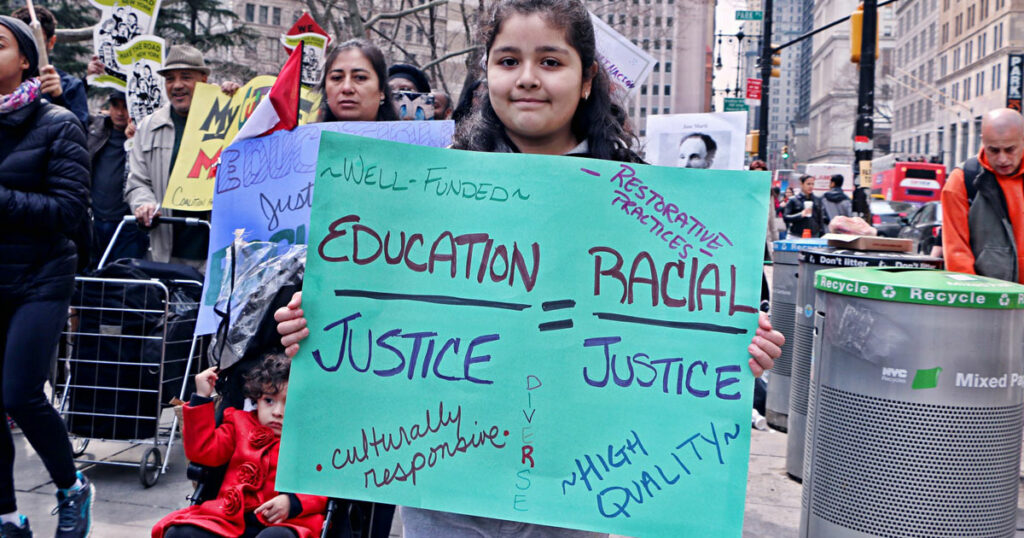Blog
Students are Back in Schools. What Will They Be Taught?

As students return to in-person schooling across the country, the first question for many of us is: what’s in the air? But also at the heart of education discussions we find another question: what’s on the chalkboard?
Parent-led movements to improve public school curriculum — to increase the diversity of voices and provide an accurate and truthful look at our society’s present and past — have been underway for decades, but have gained new prominence and momentum over the past several years. The most promising victory for what advocates term “Culturally Responsive Sustaining Education” can be found in New York City. Thanks to the tireless efforts of groups like our grantee partner the Coalition for Educational Justice, hundreds of millions of dollars have now been allocated to completely overhaul the city’s public school curriculum.
In a new essay for City Limits, public school parent and educator Kate Singh reflects on the importance of centering culturally responsive education as schools attempt to address the learning loss of the past year:
- When students see themselves represented in the curriculum, they feel affirmed; they’re more likely to develop trust and relationships with teachers, and a sense of belonging builds self-confidence. CRSE helps students hone their critical thinking skills, leading to better outcomes in assessments. The goal of CRSE is to represent, honor, and empower students. Research demonstrates that culturally responsive education decreases dropout rates and suspensions for both students of color and white students, and increases grade point averages, student participation, self-image, critical thinking skills and graduation rates…
- Right now our public schools are poised to receive an influx of funding, and there is debate over where to allocate that money. Some parents have voiced concerns over “learning loss” due to the COVID-19 pandemic, and wonder how our kids are going to catch up. One way to ensure growth and learning is to build bridges to our students’ communities through curricula that reflect their own experiences. Research has shown that children are more engaged, motivated and successful in school when academic learning connects with their lives, families, neighborhoods and cultures. If we want to address “ learning loss” then we need to dig in and learn to affirm who our students are. I want this for my children, and for all of our children.
Elsewhere, however, opposing voices are still stronger. Under the guise of attacking what they call “Critical Race Theory,” white reaction has reared its head, emboldened after President Trump’s attack on the 1619 project last year. Just this month, a nationally recognized educator in Florida lost her job after she put up a Black Lives Matter flag and helped her students organize for racial justice in Jacksonville. As the Southern Poverty Law Center reports:
- In June, the Florida Board of Education adopted a new rule attempting to ban teachers from addressing race and equity in the classroom. This directive to exclude inclusive and culturally responsive education, strategically mislabeled “Critical Race Theory,” is one of dozens of regressive policies being introduced by aggressive conservative politicians across the nation.
- “Unfortunately, Ms. Donofrio is not alone. We are seeing teachers across Florida and the country who are facing persecution from their school districts for teaching the truth in schools and for creating safe learning spaces for all children,” said Evian White De Leon, one of the SPLC attorneys representing Donofrio in her case.
The long-term disinvestment from public schools, the stark inequities in education funding, the rise of de facto segregation, and the whitewashed curriculum taught in too many classrooms: all these problems are interlinked, connected by structures of white supremacy, patriarchy, and economic inequality that disempower communities and concentrate power at the top. Fortunately, organizers for education justice are taking to heart Audre Lorde’s insight that “we do not live single-issue lives,” creating organizations that build the kind of popular power needed to grasp these problems at the root.


